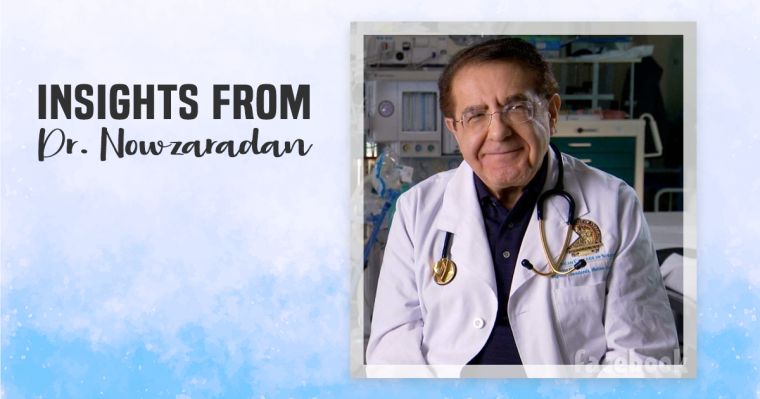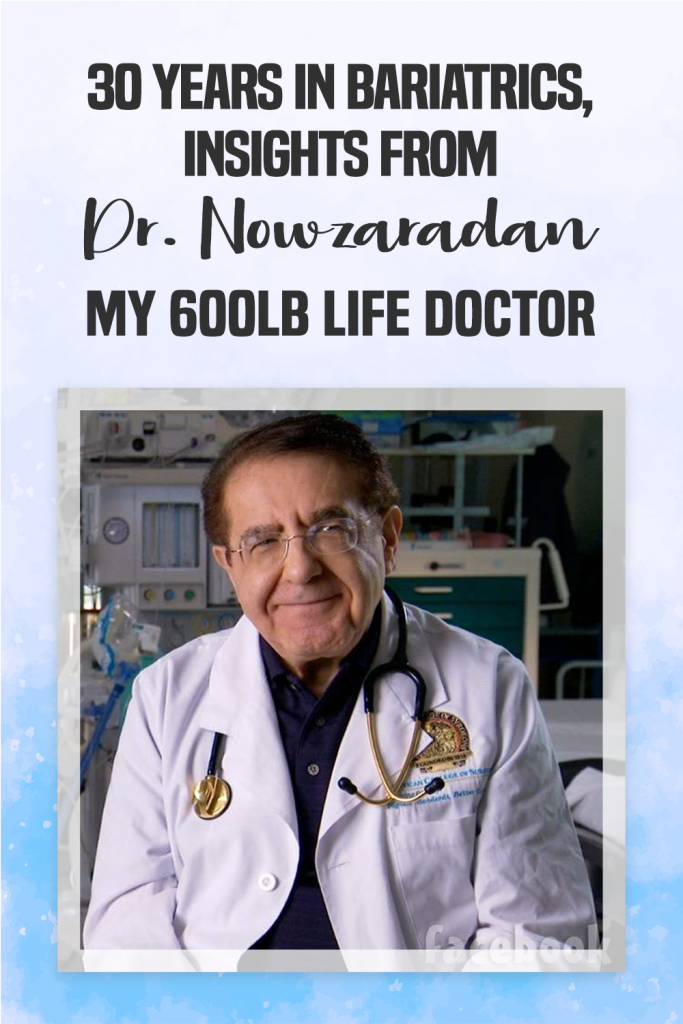
30 Years in Bariatrics, Insights from Dr. Nowzaradan, My 600lb Life Doctor
October 20, 2017Dr. Nowzaradan, My 600lb Life Doctor was the keynote speaker at the 2016 ObesityHelp National Conference and the speaker of the Fireside Chat. Dr. Now shared valuable information regarding bariatric surgery, his purpose for creating the TLC "My 600lb Life" hit show, weight loss surgery and explained the metabolism before, immediately after surgery, and at five years post-op. He also discussed the difference in a 5% success rate and what patients can do to avoid being in the other 95%.
You'll be able to read about these topics by Dr. Nowzaradan (My 600lb Life Doctor) in three articles. This is the first one so stay tuned for the next two articles.
The Passion & Obstacles of Dr. Nowzaradan, My 600lb Life Doctor
In the early 1970's, when I started doing bariatric surgery, 350 pounds was considered to be a high-risk to have surgery. There are many people that exceed the 350-400 pound weight restriction policy that most bariatric centers had. To me, these are the people that need the most help by having the operation so I knew I needed to find a way to help them.
It was an uphill battle to convince the hospital administration to go the extra mile and provide what we needed to help these patients. Back then, the equipment weight limit was only 400 pounds. As an example, the typical operating table would only hold 400 pounds. It was another challenge to convince anesthesiologists to put these heavier patients to sleep so the surgery could be done.
There was obstacle after obstacle, from the facility to anesthesiologists, to take a risk on these patients that needed our help so much. I had an army of people that I couldn't convince to help my patients to get well. It was my belief back then and still is today, that we should not discriminate against these patients that need the most help that we shouldn’t turn them down. We had to find a way.
I can tell you it hasn’t changed much since all those years ago. The challenges right now are even harder. I get criticized regularly for taking care of the heavier patients. I have battled with the same factors that I battled before.
High-Risk and Low Reimbursement for Heavier Patients
Another big issue currently is that the current reimbursement is not very good. The heavier patients are very high-risk and most of them are on disability so they don’t have insurance or have minimal coverage. Many healthcare people shy away from taking care of them due to the high-risk and low reimbursement.
As an example, one time I took care of a patient that weighed 800 pounds. We did the surgery and he stayed in the hospital for a bit to monitor his recovery. By the time that the patient’s insurance paid and the charges were deducted, they sent me a check for $.97 cents as my reimbursement as his surgeon.
The finances are just one aspect of taking care of these higher risk patients. Many doctors are reluctant to take care of them because they can take an enormous amount of time. If a provider has to devote a lot of time for their care and the reimbursement is not enough, many providers consider this as a problem.
High-Risk Requires Highly Skilled Doctors
Since these patients are high-risk, they can be too risky for the skill of some doctors. If a doctor isn't skilled enough, and you take care of the patient, something goes wrong and you lose a patient, you're going to doubt your ability. Having that doubt can be a very harsh thing for them to tackle.
Even if a doctor has the ability to take care of these patients, you have to be ready to work with all of the obstacles around that case. Some of the obstacles are people that will discriminate about their weight.
Another issue that I experience is that my colleagues come to me and ask why I take care of these high-risk patients. They will tell me these patients "ate themselves to death and you're taking care of them." I keep explaining to these colleagues that their situation is not their choice. It is due to a metabolic and genetic predisposition for them and they don't have any choice. These colleagues don't understand that this is a disease that is beyond the high-risk patients' control. I regularly explain to them it isn't due to a lack of discipline, it isn't due to eating themselves to death, it is due to a disease they have no control over.
I gave my book to 20 of my colleagues and later asked them something about it. Nobody read it. That’s the situation that you deal with, many people don’t want to go there. There is so much judgment of the heavy, high-risk patients and it is considered by many that they have a lack of discipline. Their belief is that these patients brought it on themselves and we shouldn’t take care of them. We shouldn’t take a risk to take care of them. But that’s not the whole issue. These people are in this situation and they need help, and we shouldn’t discriminate against them, and shouldn’t be biased about them, and we shouldn’t judge them. And that’s a problem that we have to deal with today.
Goal and Purpose of Creating TLC’s “My 600lb Life”
We continue to try to provide education for everyone. That's the reason I started the television series (TLC's "My 600lb Life") was to make an impression on the medical community that they should take care of these patients. Another reason important to me was to have a show that provided inspiration for people and for the medical community with my hope to change bias opinions about morbidly obese people.
Unfortunately, it’s not working the way I hoped. They still discriminate and are very biased about these people. I am still criticized for taking care of them. So, that has not changed. I have to pursue what I'm doing and hope everybody can understand one day. This is something that we need to spread the message that obesity is not a patient’s choice.
(Article was created from the transcripts of the videos of Dr. Nowzaradan My 600lb Life Doctor)




